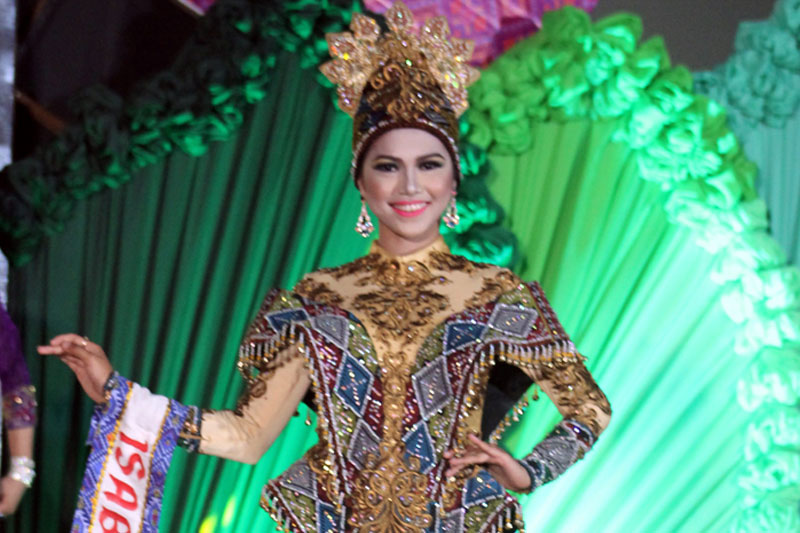A look at a local Muslim beauty pageant

The 2018 Mussha si Basilan Pakaradjaan is Florivie Caburnay of Isabela City.
MANILA, Philippines — In the conservative Muslim world, women do not compete in a “beauty contest” but in a cultural pageant.
At the recent Pakaradjaan, the week-long festival commemorating the foundation of Basilan, Gov. Jim Hataman Salliman challenged Islamic purists by holding the Mussah si Basilan or the Pearl of Basilan.
Despite tradition that Muslim women are not to display themselves in public, the pageant defied Western ideals of physical beauty. It became the province’s search for a young, elegant, intelligent and more important, religiously pious representative. The candidates prayed several times.
“Their clothes should be culturally sensitive. We looked for presence, vision for their future, role models for their community. They should show that beauty is in the character,” said Salliman.
The winner, Florivie Caburnay, a student from Isabela City, stood out from the six other participants for her poise and intelligence. She will help the provincial government in promoting civic projects.
The pageant highlighted culturally and environmentally-driven fashion. The official attire for the catwalk comprised of head scarves and closed-neckwear and no exposure of elbows and ankles, rules of Islamic modesty.
The first part featured gowns celebrating local and found materials. Although the clothes seemed outrageous, the looks echoed the ecological advocacies of the seven municipalites such as conservation of the coral reef, waste management, recycling and disaster preparedness.
Caburnay’s costume was repurposed from rice and flour sacks. The hooped gown was dyed in bright colors and layered with giant woven fans and paper cutwork.
On the other hand, first runner-up Anisa Malangkis, a student from Sumisip, wore a gown and a crown made of dried coconut flowers.
Showing the resilience of the bamboo, second runner-up Jurin Culen from Lamitan City wore a terno made with bamboo buttons for the top and bamboo fringes on the skirt.
Other contestants used recycled paper, dried leaves, abaca coir and other excesses on their ballgowns.
The highlight was the modern use of yakan weaves for the evening gown competition. The weaving is the province’s greatest heritage. Gov. Salliman wanted to correct the misimpression that the yakan fabrics originated from Zamboanga, not from Basilan.
Caburnay’s yellow gown was accentuated with python patterns on the bodice and sleeves. Malagkis, who was also crowned Miss Tourism, wore a royal purple column with diamond patterns. Culen, also named Miss Youth Ambassador, donned a black gown with colorful rainbow weaving and native brass buttons on the shoulder.
Salliman said that the winners, as role models, can communicate their experiences as Muslim women to the rest of the country whose views about Basilan are naive.
- Latest
- Trending


















 Exclusive
Exclusive












